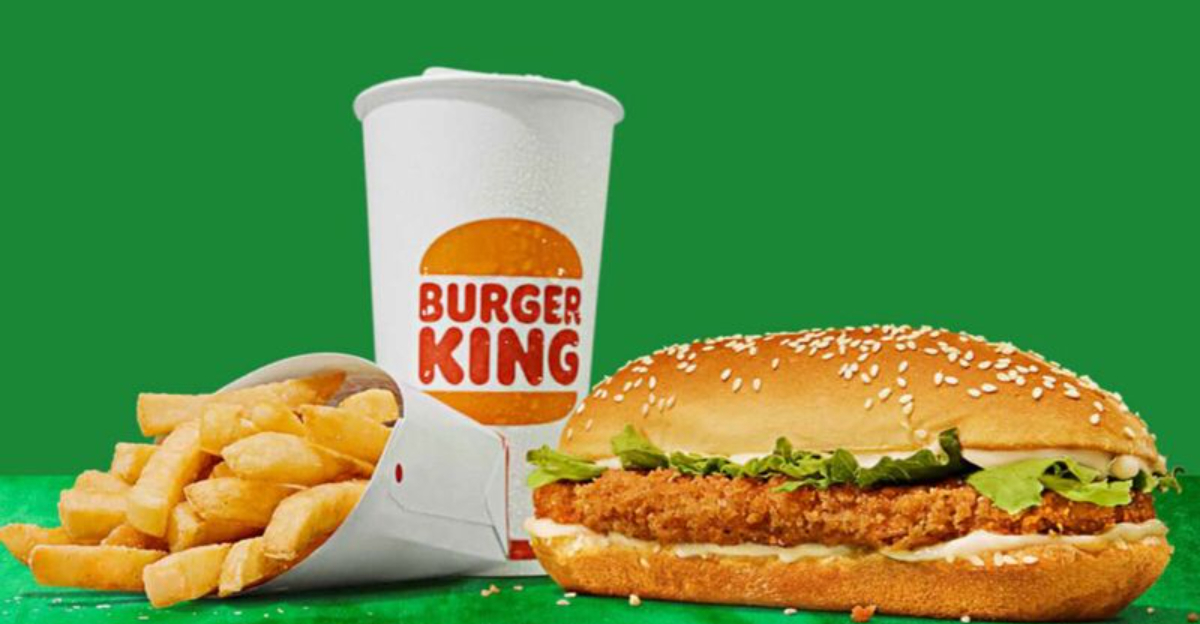10 New York Burger Chains With Dubious Beef Standards

Ever wondered what’s really in your favorite burger?
As a New Yorker who lives for a good patty, I’ve done some digging into what’s actually between those buns. The truth about beef quality at popular chains might make your stomach turn.
From mystery meat to antibiotic concerns, these familiar logos might be serving up more than you bargained for.
1. Checkers’ Mysterious Meat Matters
Last summer I hit a Checkers after midnight—big mistake. Their bold flavors mask concerning practices behind the scenes. The chain has repeatedly appeared in reports questioning their beef quality and transparency.
Most concerning? The heavy use of preservatives and a complete lack of guarantees about antibiotic-free meat. When I asked a manager about their sourcing, I got blank stares and a shrug. Their prices seem too good to be true because, frankly, they might be.
The company remains suspiciously quiet about exactly where their beef comes from, raising red flags for anyone who cares about what they’re putting in their body.
2. Wendy’s Wobbly Beef Policies
Square patties don’t equal square dealings. My cousin worked at Wendy’s for three years and shared some troubling insights about their beef practices. While they’ve made noise about “fresh, never frozen” meat, their transparency about antibiotic use remains frustratingly vague.
The company has improved chicken sourcing standards, which makes their reluctance to address beef concerns even more puzzling. When pressed for details, corporate responses use impressive-sounding language that actually reveals very little.
My favorite childhood burger spot now leaves me with questions. Why the secrecy if there’s nothing to hide? Their competitors have made strides in beef quality disclosure while Wendy’s continues to sidestep clear commitments.
3. White Castle’s Slider Secrets
Those tiny sliders pack a mighty questionable punch! I’ve watched them cook these paper-thin patties that seem more like beef-adjacent products than actual meat. White Castle’s famous burgers rely on highly processed, industrial-grade beef that barely resembles what you’d buy at a butcher shop.
The company has taken baby steps toward transparency, which I appreciate. However, their supply chain still draws from massive processors with spotty animal welfare records.
Remember those holes in the patties? They’re not there by accident—they’re designed to cook the meat faster and require less actual beef per burger. Clever for profits, not so great for quality standards or your health expectations.
4. Five Guys’ Hidden Beef Background
Shocking confession: I used to be a Five Guys devotee until I started asking questions. Their famous fresh-ground beef certainly tastes better than most chains, but try asking where it comes from—you’ll hit a wall of silence.
For a premium-priced burger joint, their lack of transparency about sourcing practices is disappointing. No public antibiotic policies exist, and they offer zero sustainability certifications that many competitors now proudly display.
The red flags appeared when I noticed how carefully their marketing avoids specific claims about beef quality or origin. They focus on freshness (which is great!) but skillfully dodge questions about what happens before the meat reaches their kitchens.
5. McDonald’s Murky Meat Standards
Golden arches, tarnished standards? My nephew’s school took a field trip to a McDonald’s and came back with a glossy pamphlet about their “quality ingredients” that somehow managed to say almost nothing concrete.
While Mickey D’s has improved some practices globally, their U.S. beef policies remain particularly concerning. They’ve dragged their feet on comprehensive antibiotic reduction commitments that other chains have already implemented.
The biggest issue? Inconsistency. Their massive supply chain means beef quality varies dramatically depending on which suppliers service which regions. This explains why that Big Mac tastes different in Manhattan than it does in Buffalo—and neither version meets the quality standards health-conscious consumers expect today.
6. Burger King’s Royal Deception
The King might need to abdicate his throne after closer inspection of his beef practices! My vegetarian friend accidentally got a real Whopper instead of an Impossible one, prompting my deep dive into BK’s meat sourcing.
Their progress on cage-free eggs stands in stark contrast to their sluggish approach to beef quality improvements. When compared to industry leaders, Burger King’s transparency about animal welfare standards feels intentionally opaque.
What’s particularly frustrating is their marketing suggesting premium quality while the actual sourcing tells a different story. Their flame-grilled technique adds flavor but doesn’t address the fundamental issues with the meat itself—a classic case of smoke and mirrors (literally, in this case).
7. Johnny Rockets’ Nostalgic Nightmare
Those dancing servers distracted me from asking the important questions! Johnny Rockets banks on 1950s nostalgia while keeping suspiciously quiet about modern beef concerns. Their silence on sourcing speaks volumes.
During my last visit, I asked three different staff members about hormone and antibiotic use in their burgers. Not one could provide any information, and the manager seemed genuinely confused by the question—as if no one had ever asked before.
The chain offers zero public information about where their beef comes from or how it’s raised. For a premium-priced burger experience, this lack of transparency feels particularly egregious. The milkshakes might be authentic 1950s style, but so is their outdated approach to meat quality disclosure.
8. Applebee’s Alarming Burger Background
My birthday dinner at Applebee’s left me with more than just another year of wisdom. Their massive burger menu hides a concerning lack of information about meat quality. Despite not being primarily a burger chain, they sell enough patties to warrant transparency.
An off-duty server confided that their burgers arrive frozen in bulk from industrial suppliers. When I called corporate to ask about sourcing specifics, I was transferred three times before receiving a generic email about their “commitment to quality” with zero actual details.
The real kicker? Their prices suggest better quality than what’s actually delivered. Those fancy burger descriptions with creative toppings cleverly distract from what matters most—the questionable patty forming the foundation of the meal.
9. Friendly’s Unfriendly Beef Practices
That Fribble can’t wash away the concerning truth about Friendly’s burgers! During a road trip through upstate New York, I stopped at three different Friendly’s locations and noticed something odd—every burger looked and tasted identical, suggesting heavy processing.
The chain relies on pre-frozen, uniform patties that bear little resemblance to fresh ground beef. When pressed about sourcing or sustainability commitments, company representatives offer vague platitudes rather than concrete information.
Most concerning is their complete silence on antibiotics and hormones. In an era when consumers increasingly demand transparency, Friendly’s seems stuck in a bygone era of food ignorance. Their ice cream may be worth the trip, but the burgers represent everything problematic about fast food beef practices.
10. Red Robin’s Franchise Fiasco
“Bottomless fries” shouldn’t mean bottomless questions about beef quality! My family’s Red Robin tradition ended abruptly when I noticed stark differences between locations. New York franchise spots often serve noticeably lower-quality patties than company-owned restaurants. The franchise model creates troubling inconsistencies.
While corporate makes careful statements about quality, individual franchisees may cut corners with cheaper meat suppliers to boost profits. My requests for specific information about antibiotic use were met with confused looks and referrals to corporate.
The chain’s marketing emphasizes gourmet toppings and creative combinations—classic misdirection from addressing the actual beef quality. When a burger place spends more time talking about their onion rings than their meat sourcing, consider it a warning sign!
